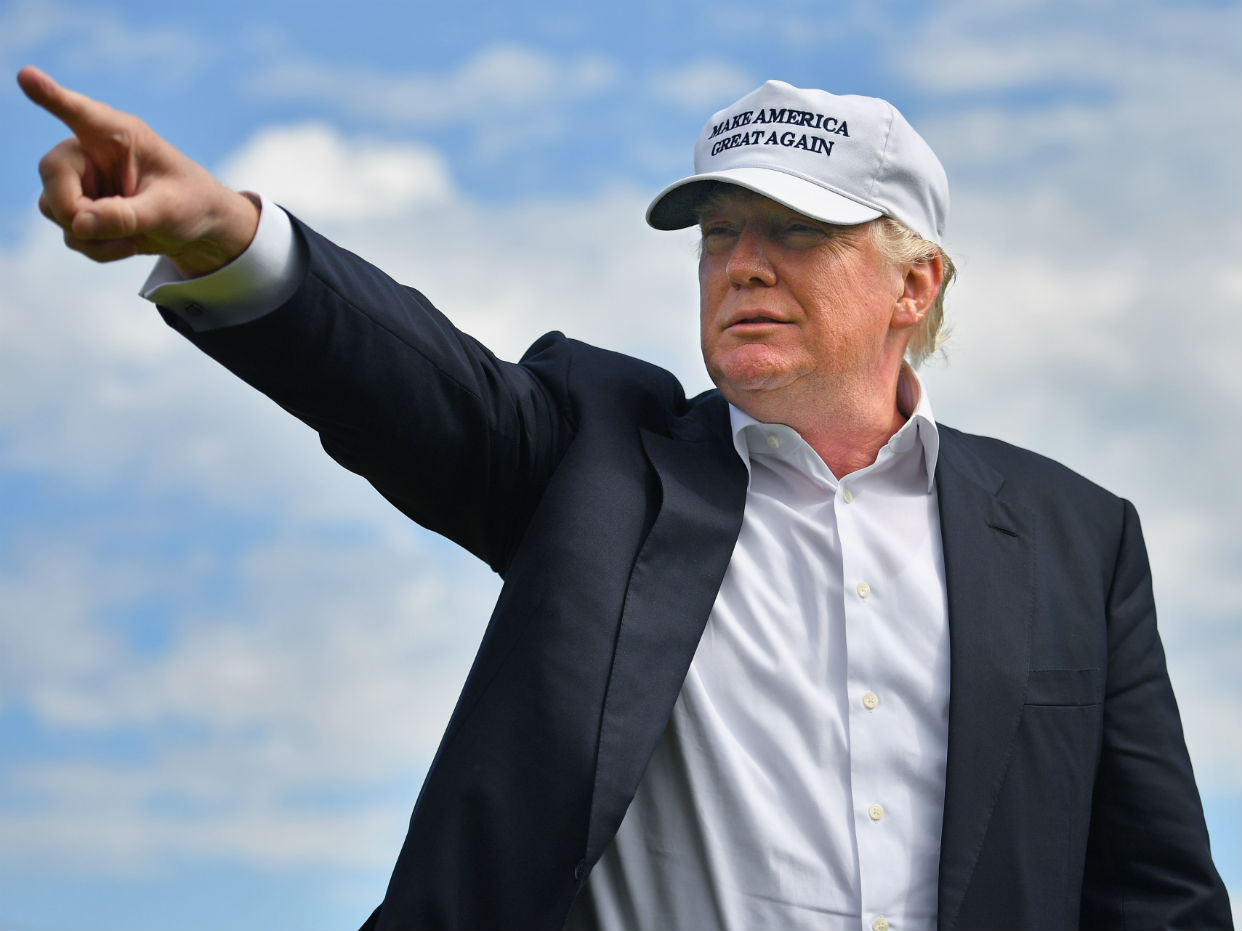Trumponomics: The good, the bad and the ugly
President-elect's effect on the economy will not become clear until he clarifies contradictory policies

A free daily email with the biggest news stories of the day – and the best features from TheWeek.com
You are now subscribed
Your newsletter sign-up was successful
The world economy has experienced its second seismic shock of the year with the election of Donald Trump as the 45th US President. Here's what to expect from 'Trumponomics' - and what it could mean for the markets and the global economy.
'Trump dump'
In the immediate aftermath of Trump’s shock election the stock markets have remained remarkably stable.
The Week
Escape your echo chamber. Get the facts behind the news, plus analysis from multiple perspectives.

Sign up for The Week's Free Newsletters
From our morning news briefing to a weekly Good News Newsletter, get the best of The Week delivered directly to your inbox.
From our morning news briefing to a weekly Good News Newsletter, get the best of The Week delivered directly to your inbox.
“Who says stock markets always overreact? Nowadays you can stick any joker you like in the White House and pretty much nothing happens: the Dow ticks up 256.95 points, while the FTSE 100 closes one per cent higher,” says Alistair Osborne in The Times.
“The markets had already priced in the impact of a bouffant-haired, orange megalomaniac, with zero experience of public office.”
Many experts are predicting that Trump will not implement all of his often incoherent and staunchly anti-trade election promises - and the Congress, which is dominated by more moderate representatives of his own party with whom he has had a combative relationship, will stop him acting on his wilder ideas.
As a result, the stock markets have “rationally decided that, hate him or not, there’s no pressing need for a Trump dump,” according to Osborne.
A free daily email with the biggest news stories of the day – and the best features from TheWeek.com
“Political earthquakes with profound economic consequences do not change the world overnight, or in a predictable fashion,” says Stephanie Flanders, chief market strategist for Europe at JPMorgan Asset Management in the Financial Times.
“In the short term, the best thing most investors can do is sit tight and look for clues from Mr Trump’s first few weeks.”
The Good
Trump has some good economic ideas, according to Ambrose Evans-Pritchard in The Telegraph.
“It is my tentative working premise that Mr Trump is not a new Mussolini and that he will ultimately trim his excesses…Call it a ‘soft Trump’ if you like.”
If that is the case then “his manifesto amounts to a massive fiscal stimulus, with tax cuts across the board, a $1trn (£790bn) blitz on infrastructure, and an imperial navy of 350 combat ships”. This could result in rising US interest rates and the dollar going “sky high”.
President Trump could be good news for UK trade as well. He has said the UK will be "at the front of the queue" for a new trade deal, a statement that was designed to contrast with Barrack Obama's pre-referendum comment that Brexit Britain would go to "the back of the queue".
The Bad
A lot of Trump’s policies don’t work alongside one another. The next few months will hopefully see him paint a clearer picture of what he actually plans to do once he is in the White House.
“At the heart of so-called Trumponomics – a policy of tax cuts coupled with increased public spending and protective trade barriers – there is a huge contradiction,” says Brummer.
“He must reconcile his wish to restore America’s growth rate to pre-financial crisis levels of three per cent to four per cent a year, while at the same time imposing high tariffs on imports.”
The stock markets hate uncertainty so until president-elect Trump puts together his cabinet and starts to give the world an idea of his plans for presidency you can expect more market volatility.
The downright ugly
The most troubling aspect of Mr Trump’s economic policy is his attitude towards China. He has stated that he will label China the ‘currency manipulator’ and bring in 45 per cent tariffs on Chinese imports. This could lead to a trade war with the Asian powerhouse.
“Beijing is not without economic weapons, since it has amassed a vast stock of US Treasury bonds in recent years,” says Larry Elliot in the Guardian. “Beijing could meet Trump’s threat with one of its own: to dump US assets.”
A protectionist stance from Trump would also have a knock-on affect on the rest of the Pacific rim - and he has pledged to rip up the Trans Pacific Partnership along with other existing free trade agreements.
“Weak countries on the Pacific rim will be left with no choice: cut off by an isolationist America, they will succumb to the orbit of an expansionist China,” says Evans-Pritchard. “Japan will have to re-arm at break-neck speed to defend itself.”
-
 How the FCC’s ‘equal time’ rule works
How the FCC’s ‘equal time’ rule worksIn the Spotlight The law is at the heart of the Colbert-CBS conflict
-
 What is the endgame in the DHS shutdown?
What is the endgame in the DHS shutdown?Today’s Big Question Democrats want to rein in ICE’s immigration crackdown
-
 ‘Poor time management isn’t just an inconvenience’
‘Poor time management isn’t just an inconvenience’Instant Opinion Opinion, comment and editorials of the day
-
 Currencies: Why Trump wants a weak dollar
Currencies: Why Trump wants a weak dollarFeature The dollar has fallen 12% since Trump took office
-
 TikTok: New owners, same risks
TikTok: New owners, same risksFeature What are Larry Ellison’s plans for TikTok US?
-
 Trump wants a weaker dollar, but economists aren’t so sure
Trump wants a weaker dollar, but economists aren’t so sureTalking Points A weaker dollar can make imports more expensive but also boost gold
-
 Leadership: A conspicuous silence from CEOs
Leadership: A conspicuous silence from CEOsFeature CEOs were more vocal during Trump’s first term
-
 The end for central bank independence?
The end for central bank independence?The Explainer Trump’s war on the US Federal Reserve comes at a moment of global weakening in central bank authority
-
 Can Trump make single-family homes affordable by banning big investors?
Can Trump make single-family homes affordable by banning big investors?Talking Points Wall Street takes the blame
-
 Phish food for thought: Ben & Jerry’s political turmoil
Phish food for thought: Ben & Jerry’s political turmoilIn the Spotlight War of words over brand activism threatens to ‘overshadow’ the big ice cream deal
-
 What a rising gold price says about the global economy
What a rising gold price says about the global economyThe Explainer Institutions, central banks and speculators drive record surge amid ‘loss of trust’ in bond markets and US dollar